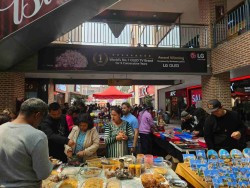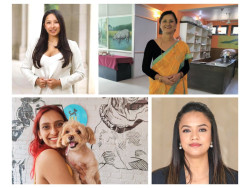Market

From childhood, Rashmi Tandukar, 29, was interested in the creative field. She loved artistic subjects over their theoretical counterparts. However, like other children her age, she was under family pressure to study medicine and become a doctor.
Rashmi obliged. She took up the science stream in classes 11 and 12 of her high school years and, to her surprise, passed with first division. But in college, she started lagging behind her peers. She did serious introspection.
Nhu the new
The course of her life changed.
Tandukar wanted to try her hand at fashion design. Without informing her family, she appeared for the entrance exams of a fashion design school in Kathmandu. She was through.
Rashmi sat her parents down and explained the step she had taken. “After a lot of conversations, they finally understood and I started my journey in the fashion designing field,” she told NepalMinute.
Tandukar discovered her love for accessories and sustainable fashion during the course. Post-college, she worked at Sabah Nepal for six years before joining ABiR Designers Hub three years ago.
While working in the digital marketing space at ABiR, she started brainstorming and planning for a sustainable business in Nepal. Finally, eight months ago, Tandukar established Nhu Nepal.
Nhu, meaning ‘new’ in Newari, is an upcycling and recycling brand based in Kathmandu. The company uses leftover denim materials from factories, wholesalers, and old denim clothes to create products like wallets, masks, laptop sleeves, notebooks, and more. While it currently does not have a physical store, people can buy their products at various exhibitions or online.
Pollution control
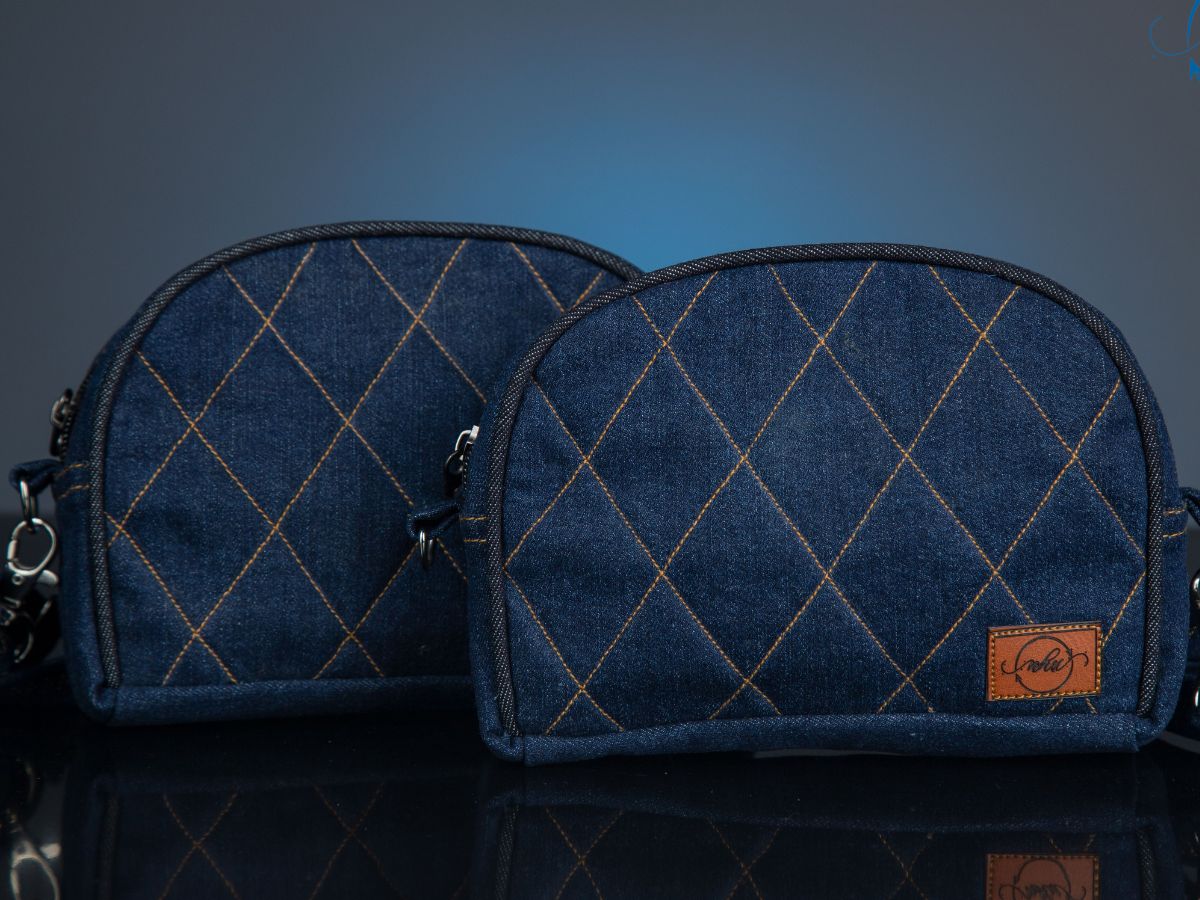
Tandukar picked denim material from a wide variety of fabric choices, and the reason is simple: reducing pollution.
The manufacturing of denim starts with using cotton to create the fabric. After that, it goes through many processes like spinning, dyeing, coating and more, before being weaved into the desired product.
According to Tandukar, every single process creates a lot of environmental pollution. Additionally, the chemicals used in the processing harm the health of the factory workers too.
“Too many environmental and health hazards need to be crossed to make denim pants, shorts, jackets,” the 29-year-old added.
Despite this, a lot of unused parts are thrown out by factories. Even consumers tend to discard their denim clothes after a little bit of damage.
Denim is a long-lasting type of material. However, denim pants are prone to damage mainly around the knees and the users discard them. But with recycling, this type of waste can be avoided, according to Tandukar.
“Denim is very strong, sustainable and durable fabric,” she added.
Business Model
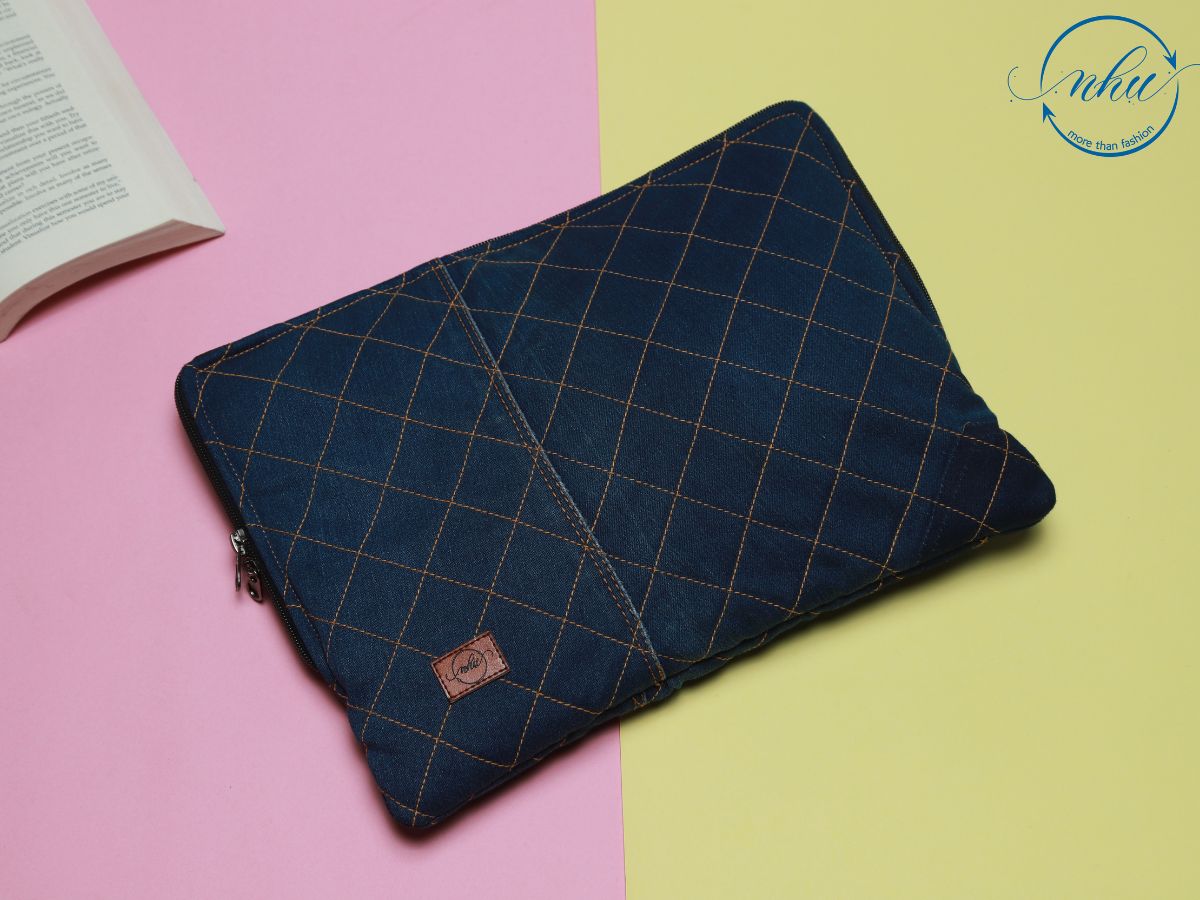
The two sources of fabrics for Tandukar are leftover materials from factories and wholesalers and the swapping campaign with denim consumers.
The COVID-19 pandemic sealed the borders reducing imports across the country. This was true for the denim market too, says Tandukar, which led to an increase in the local manufacturing of denim clothes.
“Currently, more than 50% of denim pants found in the market are locally-manufactured,” she added.
The factories in Nepal that produce denim have unused and cut pieces from the bulk of the fabric. Thus, she uses her contacts at the factories and buys these pieces at about a 40 percent discount than the original price.
The same formula is also applied for wholesalers in the New Road area of Kathmandu. These sellers have materials in bulk, which do not sell due to damage. She buys these pieces from them at discounted prices.
Tandukar has also started a swap campaign with the consumer side. Anyone who gets her six pieces of denim clothes can get a new product for free. She believes this has helped people realize the importance of recycling.
“This motivates the consumers to keep their old denim clothes. It also helped break the stereotype that I want the clothes solely to make money,” she added.
Additionally, the campaign has also helped her with word-of-mouth marketing.
Looking ahead
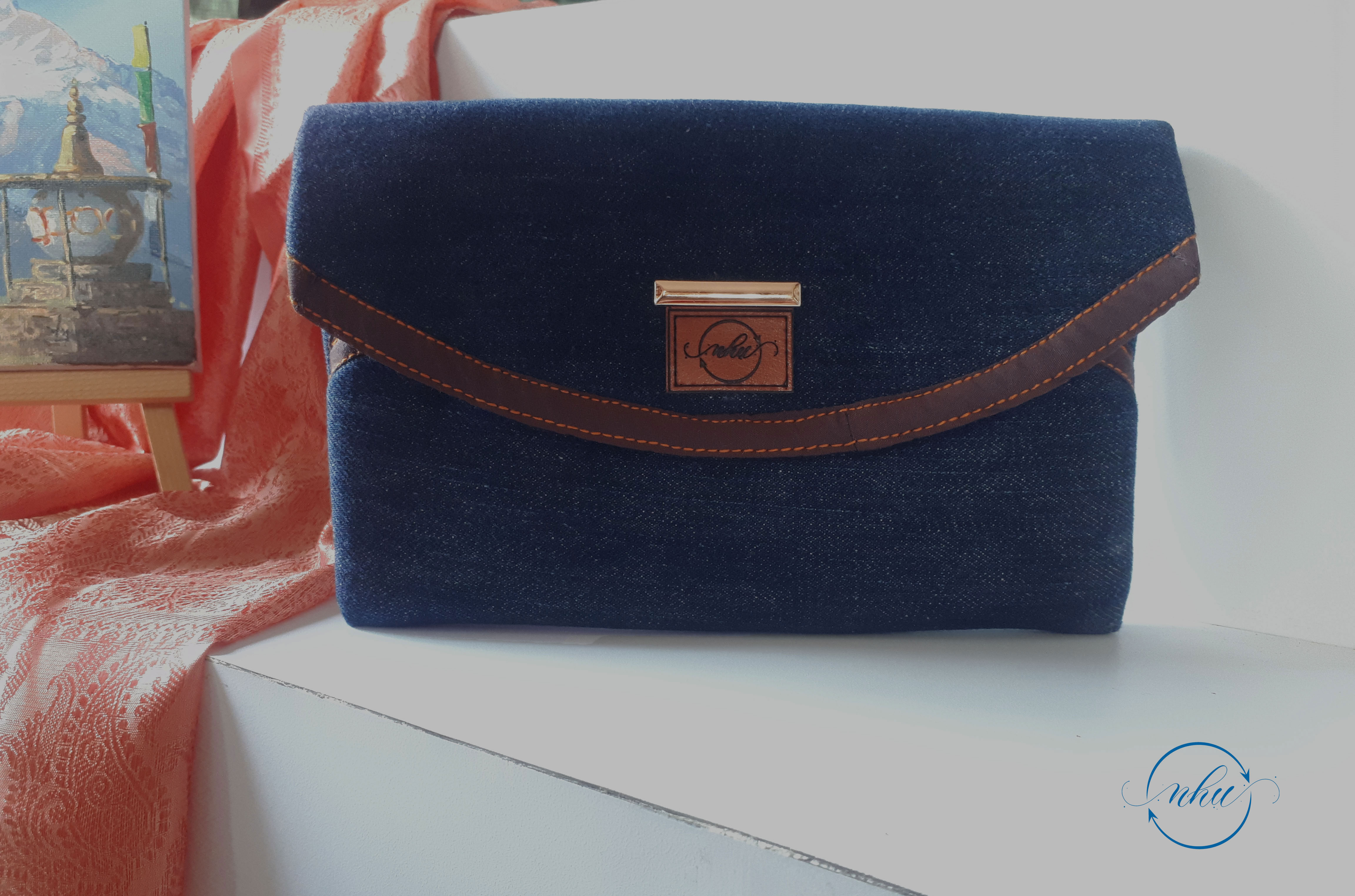
The business has a successful prospect for Tandukar. She hopes to open a physical store in the coming year. In the meanwhile, she wants to dedicate her time to educating people.
“I want to make people aware about what I am learning like sustainability, recycling, upcycling, environmental hazards and ethical fashion,” she said.
She also wants to make use of the waste materials remaining from old denim clothes.
“I use 80-85 percent of the old denim. However, buttons, zippers and some excess material is always left over, which I have stored and kept,” she said.
She wants to use those leftover materials and make mattresses for animal shelters during the chilly season.

